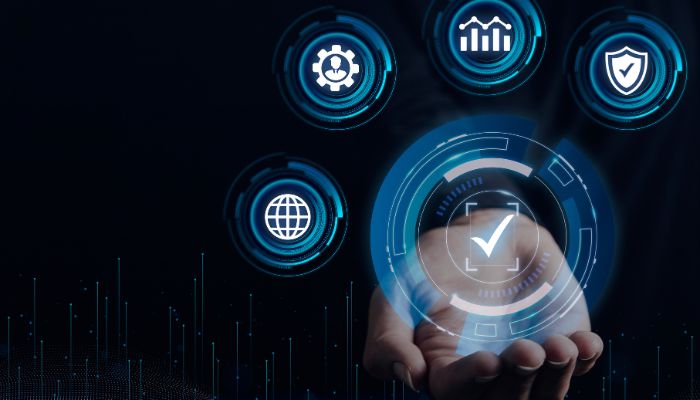The use of Artificial Intelligence (AI) in talent management by organizations is quite transformative. People now understand that AI is not going to make HR professionals redundant. In fact, by using AI, organizations can and do bring about quantum changes in the way they recruit, assess, manage and motivate talent. That HR professionals no longer fear the use of AI in key HR functions is borne out by the KPMG International Global survey, the future of HR 2019, in which 60% of the HR executives reposed faith in the HR’s ability to transform via key capabilities like AI and analytics.
Talent acquisition is a key component of talent management. AI plays a significant role in this area. Companies need to be sure that the talent recruited by them will live up to their expectations. This is not always the case as HR executives in charge of recruitment have their cognitive biases and hiring mistakes happen very often. Use of AI in HR analytics helps in structuring recruitment processes that eliminate such human observational biases. AI and machine learning in recruitment can devise a large number of questions on their future employees’ previous work experience, competencies and skills needed for the present job, and disregard their background. Thus, the use of AI in recruitment can lead to better talent acquisition by reducing errors. An IBM survey in 2017 indicated that 46% of the respondents believe that AI would transform their talent acquisition capability.
The role of Artificial Intelligence in talent management actually extends to other areas such as improvement in employee experience and personalization. Real needs of employees must be understood and effectively delivered. Many of these needs are in learning and development space and career mobility area. AI is especially useful in learning and development. Objective information collected from research can be integrated into decision making. The learning gap between optimum performance profile of employees and their actual profile can be measured. Thus, AI can help in better decision making and equipping the employees in a more effective way. Similarly, in career progression and mobility area, companies are using AI to test, track and match employees based on their skill sets, characteristics and capabilities. With these assessments, HR determines the gap between optimum profile and individual’s current profile for ideal career progression. Learning modules can be devised whose learning outcomes can be matched with skills requiring upgradation.
AI can bring about an orbital change in the way the workforce is managed. In India however, organizations are taking time in implementing the use of Artificial Intelligence in talent management. KPMG International survey states that merely 50% of HR functions have started to use AI so far. Although HR leaders are alive to the need of transforming their businesses, they are so far falling behind their global counterparts in embracing AI in HR tech in a big way. They are taking things slowly and run the risk of becoming outdated.
The need of the hour is to put AI to use in HR in a massive way as HR deals with the human component of the business. AI can be a great friend in every aspect of HR functions, from recruitment to on boarding and going on to performance assessment.
References:
- Role of AI in talent management. Vaishali Dongrie. 10th July 2019
- Rise of AI in talent management. Kerryn Kohl. 13th May 2019.






